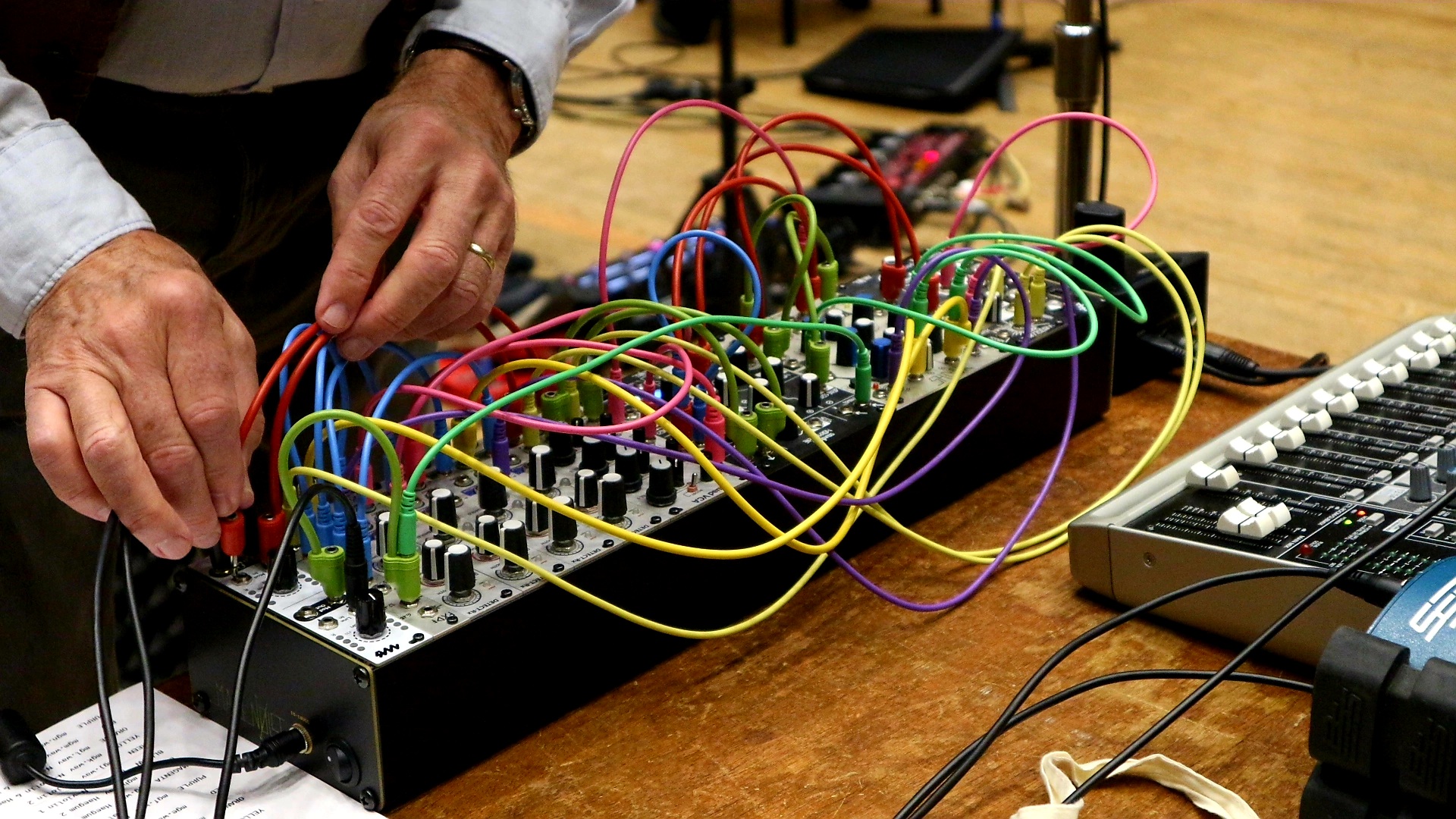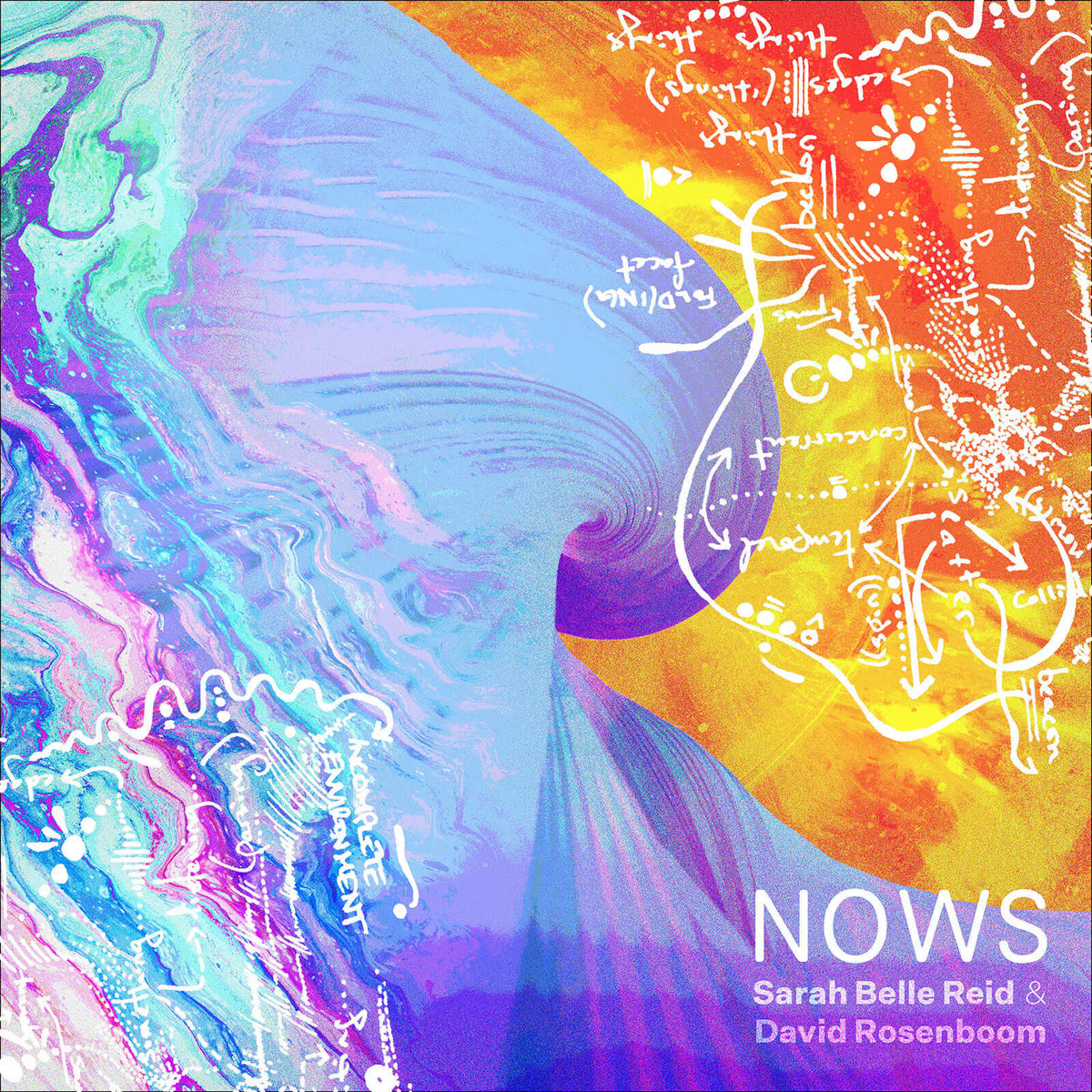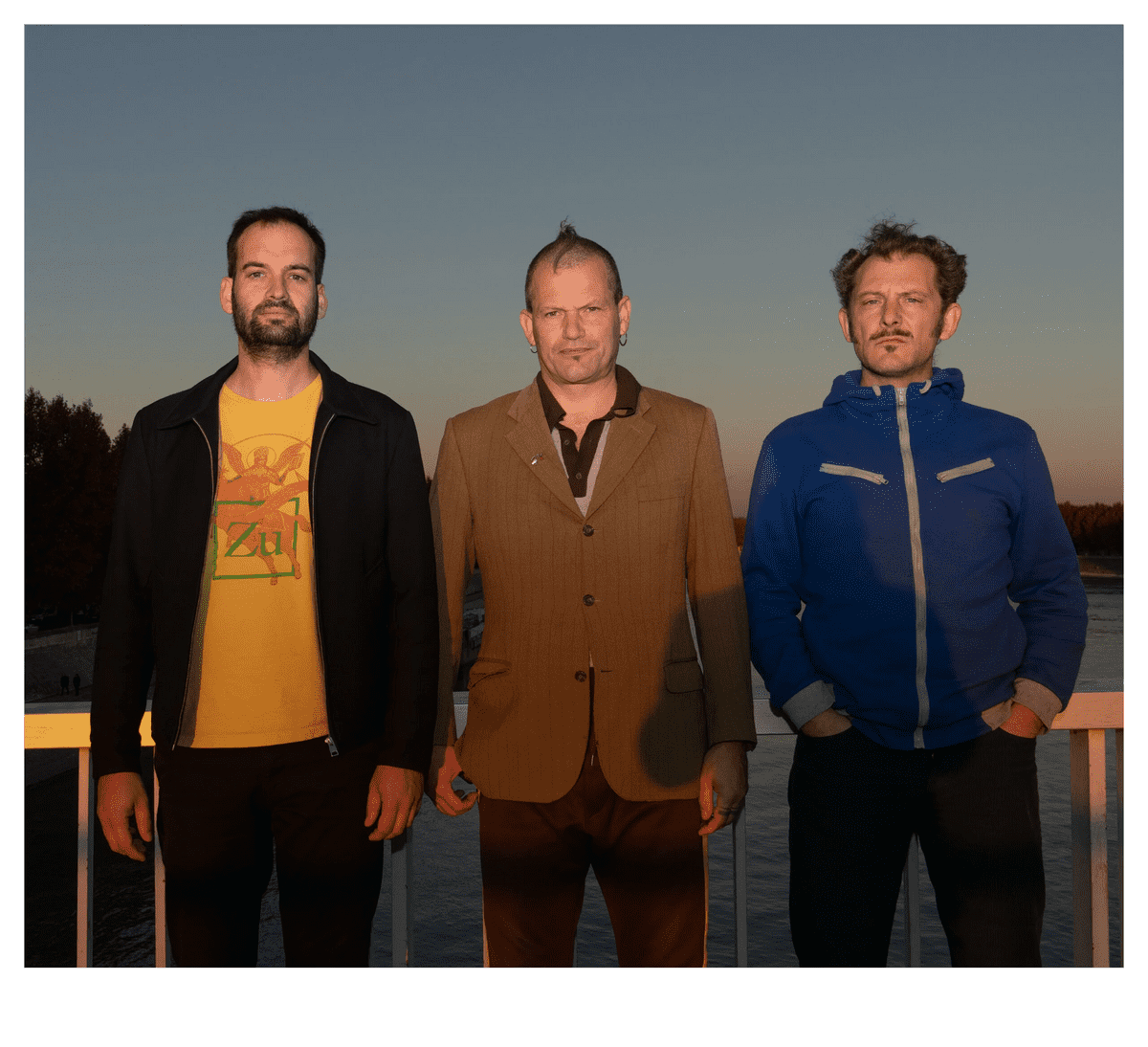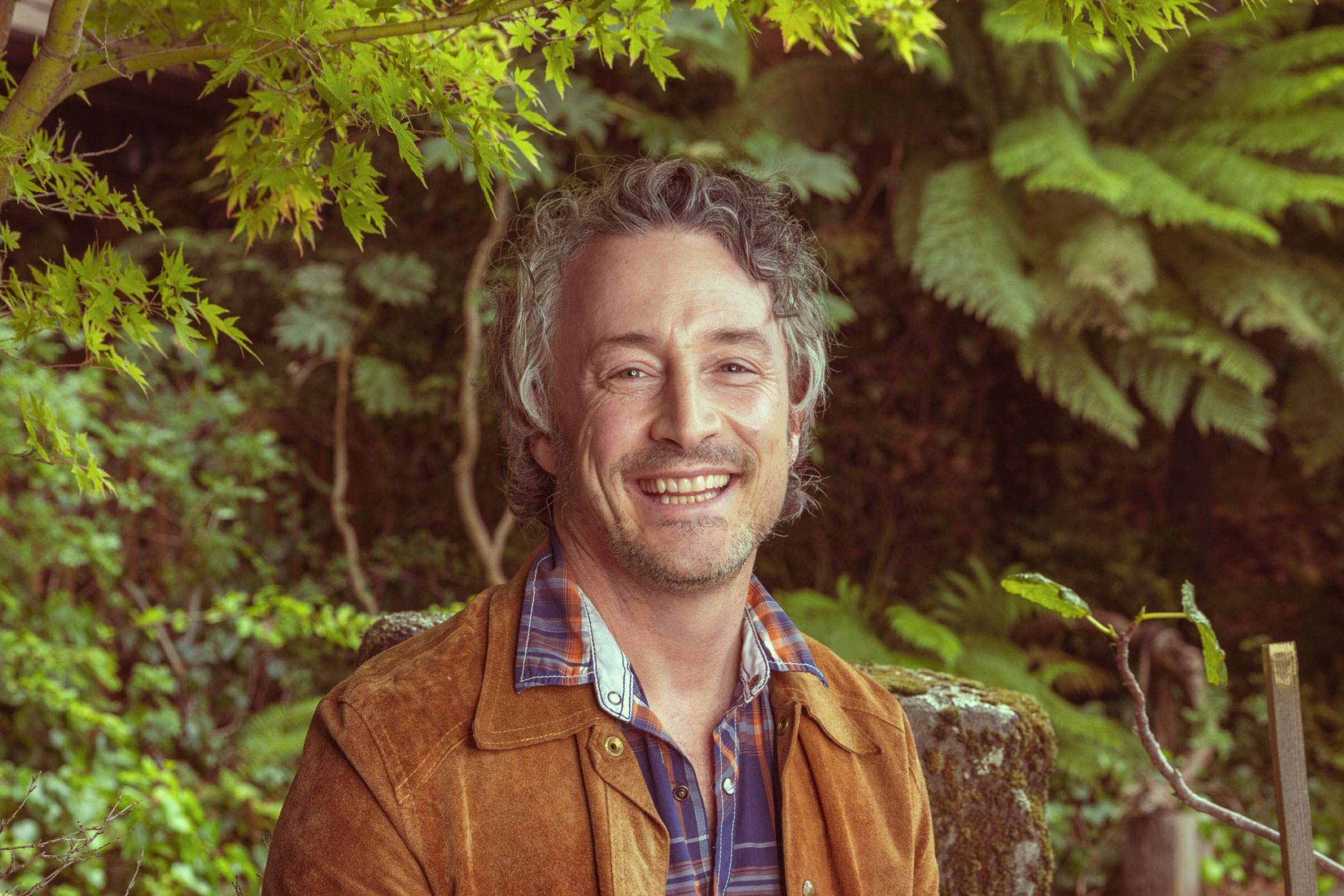Sarah Belle Reid & David Rosenboom – ‘NOWS’ (2022)
If one forms preconceptions of the album based on its cover, then the visual artwork of Sarah Belle Reid, (combining graphic notation and lavender blue-and-amber spiraling wave), is convincing – making us aspire to a unique sound journey.
Yet, aspiring to encounter the “masterpiece” (Ravello website, quote) establishing the new definition of avant-garde music for the 21st century, the recording fails to meet the expectations of a listener.
Released by Ravello Records on September 9th, 2022, the album – a collaboration of composers and performers Sarah Belle Reid and David Rosenboom – may be doomed to remain a mere documentation of the joint work of the former student and teacher.* Which isn’t bad by itself. However, if we think of the recording as experimental music appreciators in search of something new, intellectually challenging, and creatively provocative – then we have to admit that the recording was released prematurely.

Now, let’s explore the three main directions of critique:
– Conceptually, the recording presents no new meaningful idea. Both titles and what composers propose as their inspiration is a potpourri of the same units of thought and phenomena Rosenboom explored in previous decades. And, unlike before, he doesn’t make a step forward, encouraging his institutions to crystallize.
On the level of theme-setting, Rosenboom dominates Reid’s individuality. All motifs featured reflect his fascination with scientific concepts over the years. He invites Reid as the one who can comprehend and reflect the same interests. But he doesn’t allow her to bring anything new. As a result, both of them basically recycle past conceptual motifs of Rosneboom’s work, without generating new propositions regarding time, sound, non-linear dynamics, the emergence of physical properties, or other concepts mentioned.
On the level of wording-recycling “Never Know Night Ears” in NOWS gives a reference to “And Out Come the Night Ears” in Collaboration in Performance (1978) of Buchla and Rosenboom. Or on the level of the subject-reuse – “Accelerated Mitosis” on NOWS and “ Part IV: Epigenesis, Ontogenesis, Phylogenesis, Pathogenesis” on Zones of Influence (1985).
– As a collaboration of two artists, using trumpet (Reid) and e-violin (Rosenboom) as their main instruments in addition to electronics, the recording doesn’t present a musical convergence of two individuals-artists. “Correpondencies” contributed by each musician are identifiable, they exist somewhat independently. Barely in any composition they merge into complementarity creating new qualitative phenomena – following the formula 1+1≠2. The lack of musical symbiosis impedes comprehension of the album’s idea and aesthetic enjoyment.
– The quality of the recorded material and approach to structuring sound pieces in a coherent whole evoke frustration. Of course, many people in the experimental music community like noise, noodling, muffed, and distorted sound. But what if the CD gets to someone who isn’t loyal to “messy” musical material? Too high indeterminacy, as we’ve been learning for over half a century (Berlyne, 1974), prevents intellectual comprehension and aesthetic appreciation of an art piece. Which is the case with NOWS. While Rosenboom keeps talking about propositional modeling (Rosenboom, 2000) as his approach to music making – in fact, the recording lacks any model. A unifying idea explored through sonic language.
Written by Anastasia Chernysheva, a Ph.D. student at University of Illinois.
Sarah Belle Reid & David Rosenboom – ‘NOWS’ (2022) (Ravello Records)
References:
● Sarah Belle Reid earned her MFA (2015) and DMA (2020) from the California Institute of the Arts mentored by David Rosenboom, who’s a faculty at the School of Music at CalArts.
● Rosenboom, D. (2000). Propositional music: on emergent properties in morphogenesis and the evolution of music. Arcana: musicians on music, 1, 203.
● Berlyne, D. E. (1974). Studies in the new experimental aesthetics: Steps toward an objective psychology of aesthetic appreciation. Hemisphere.




